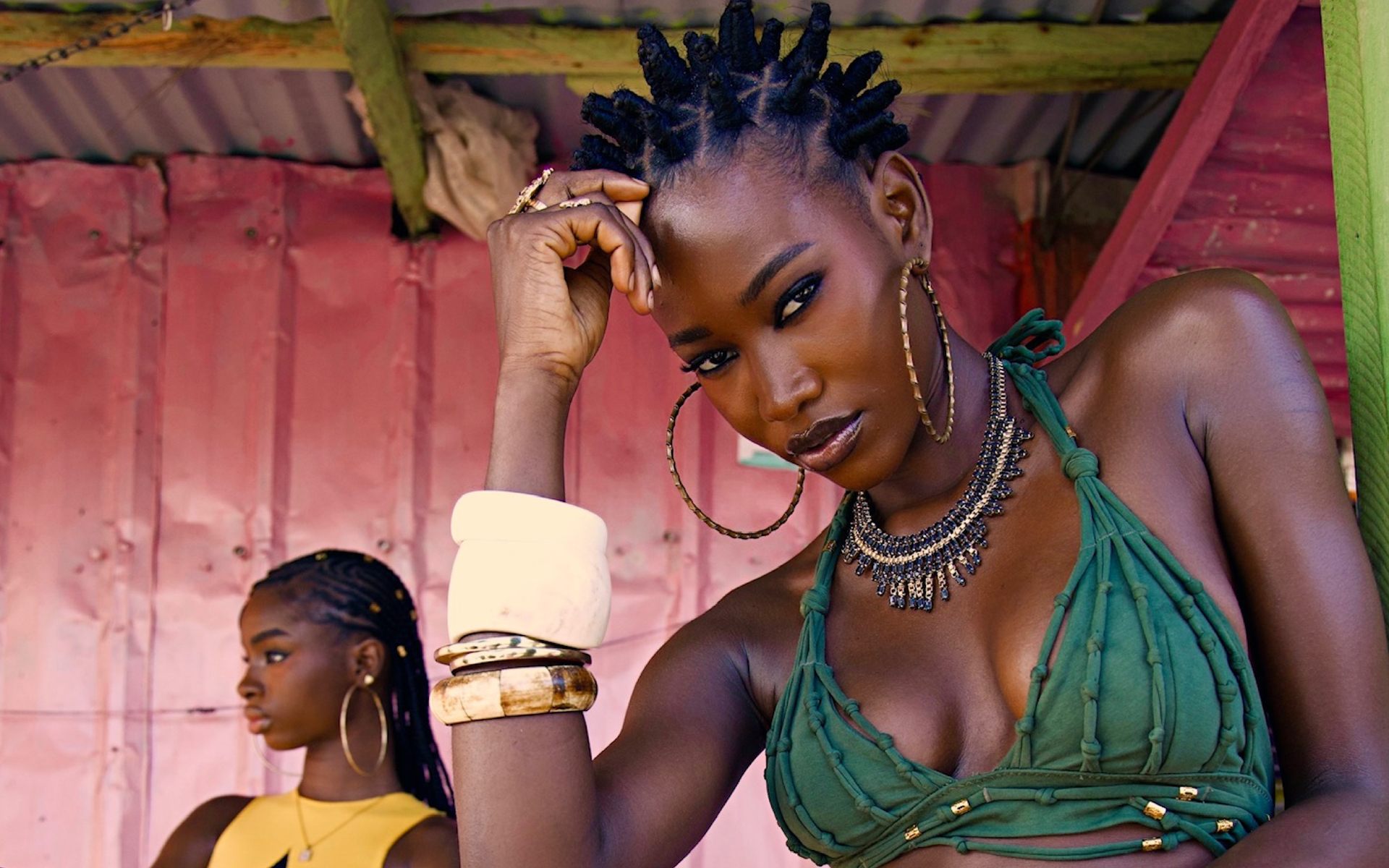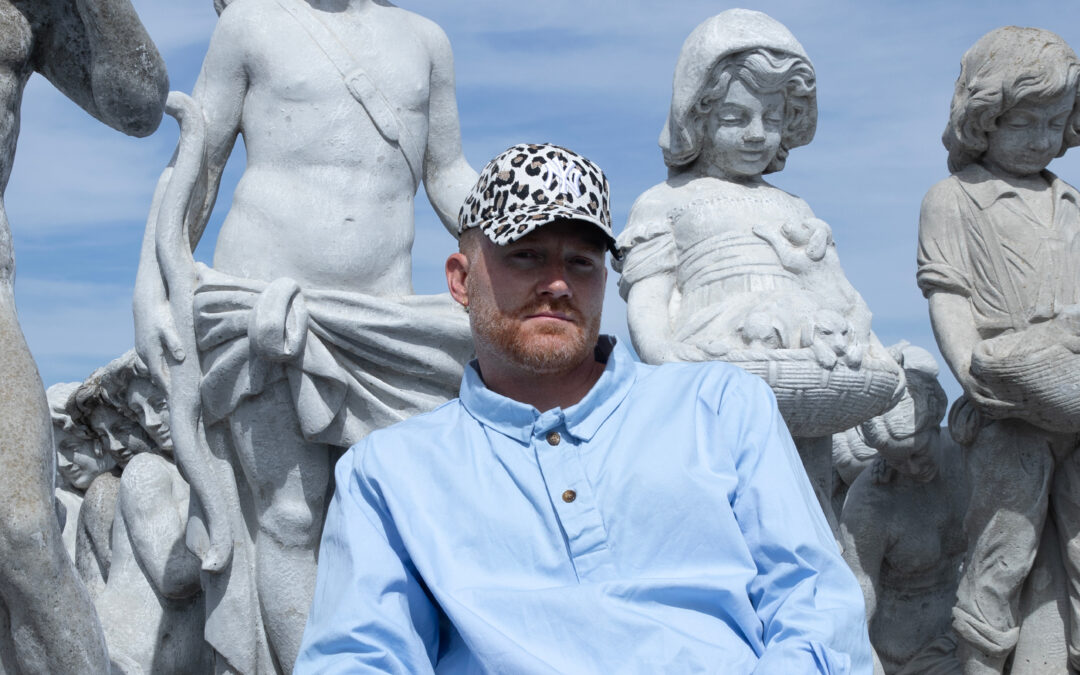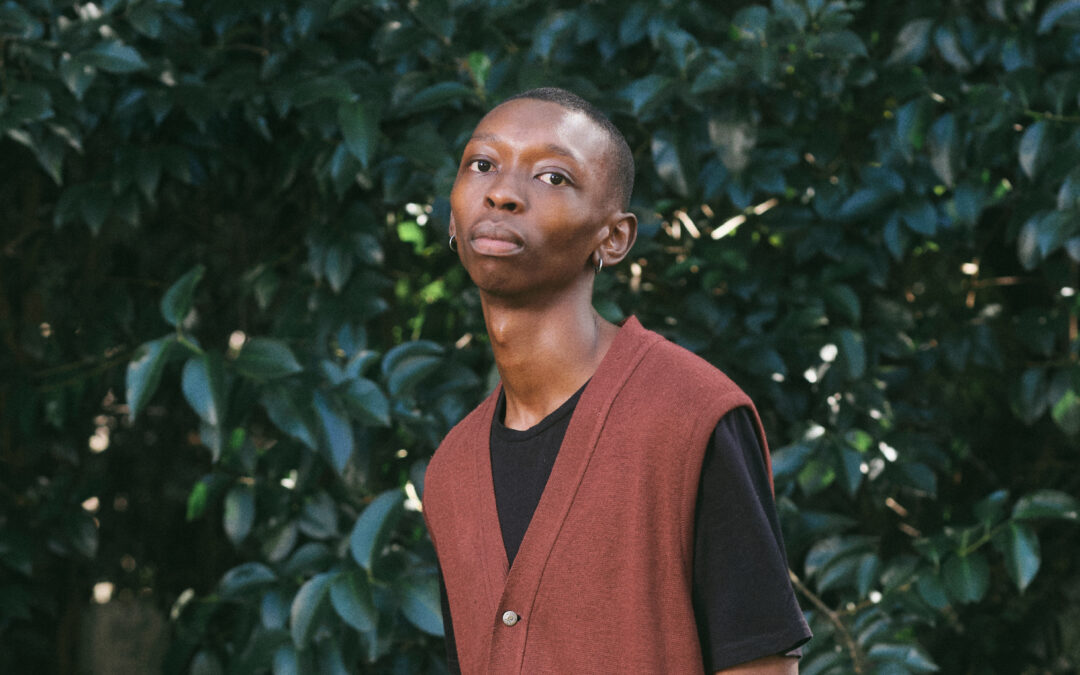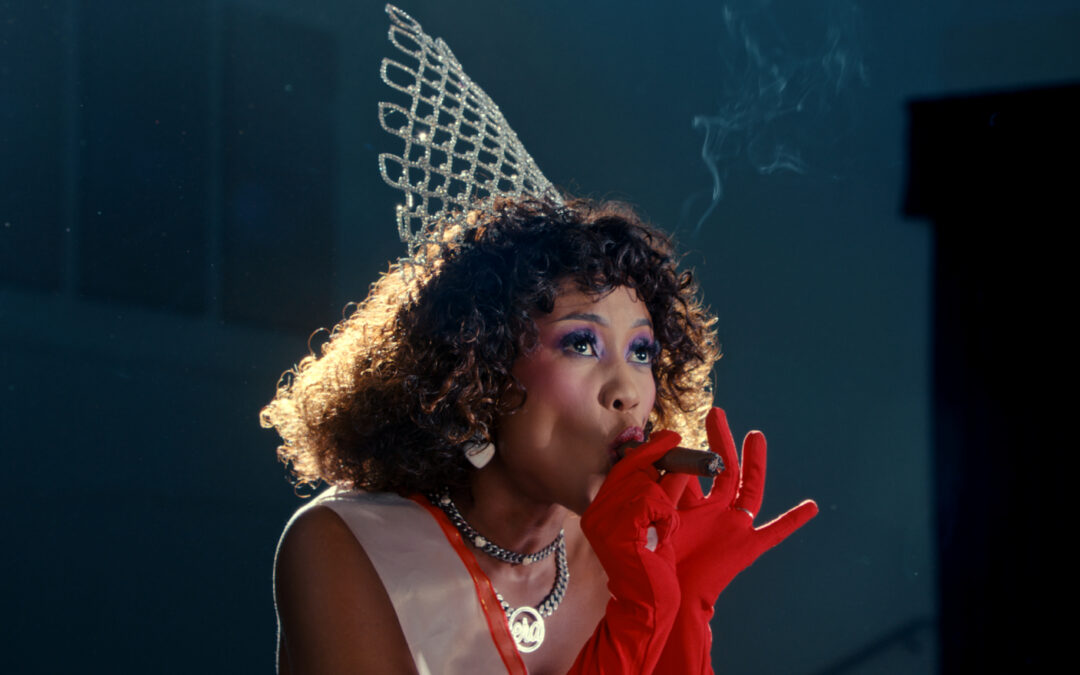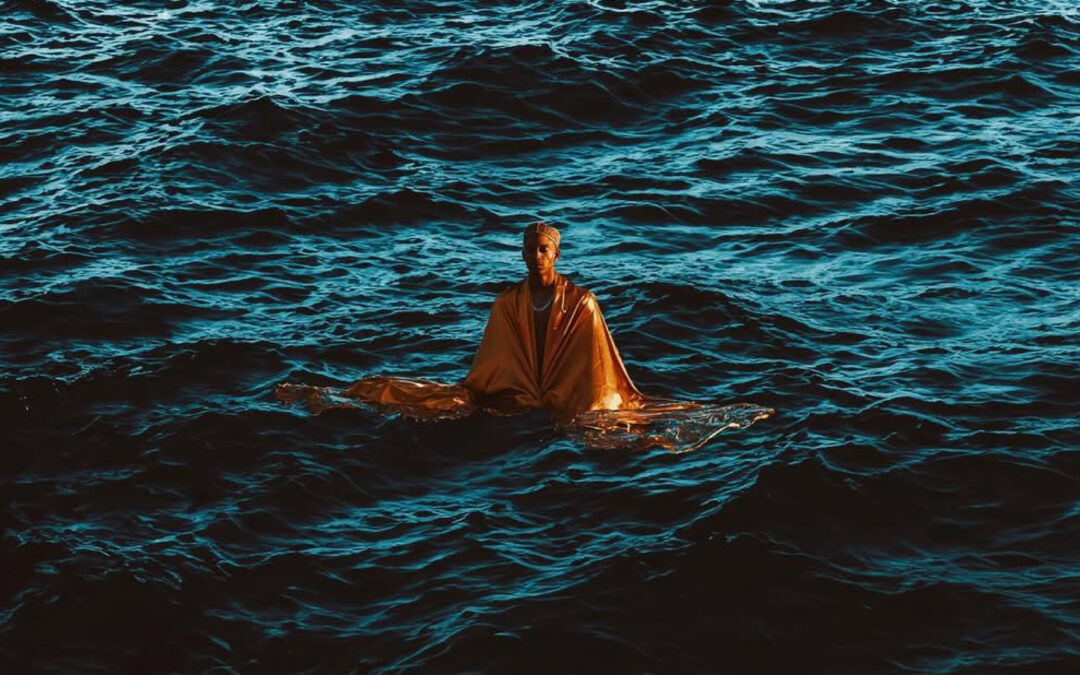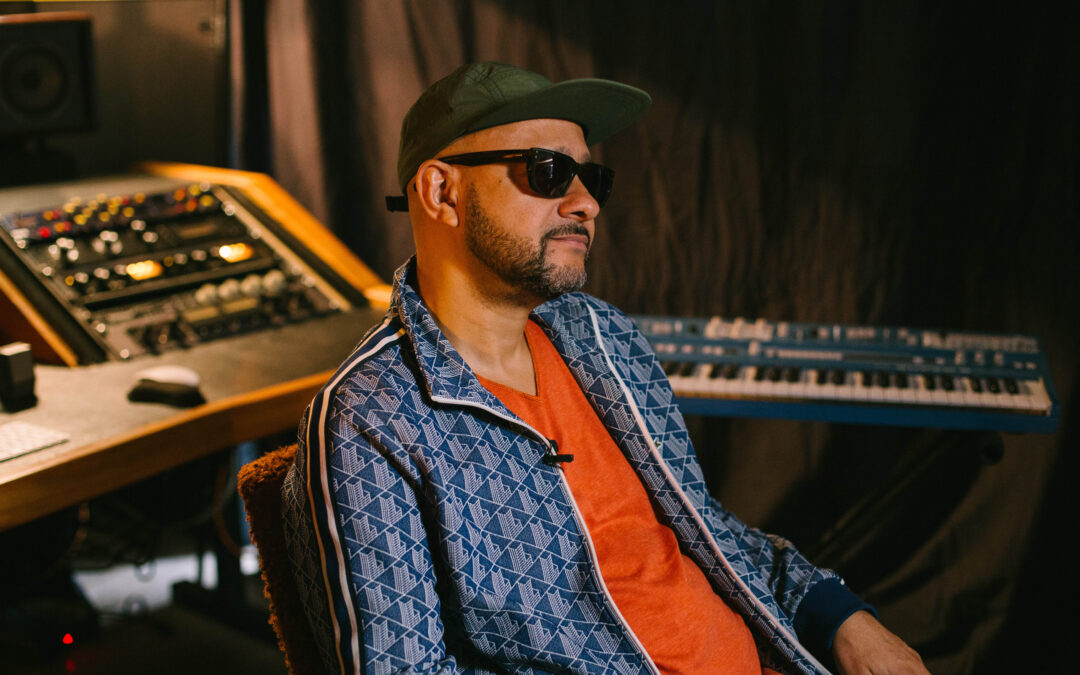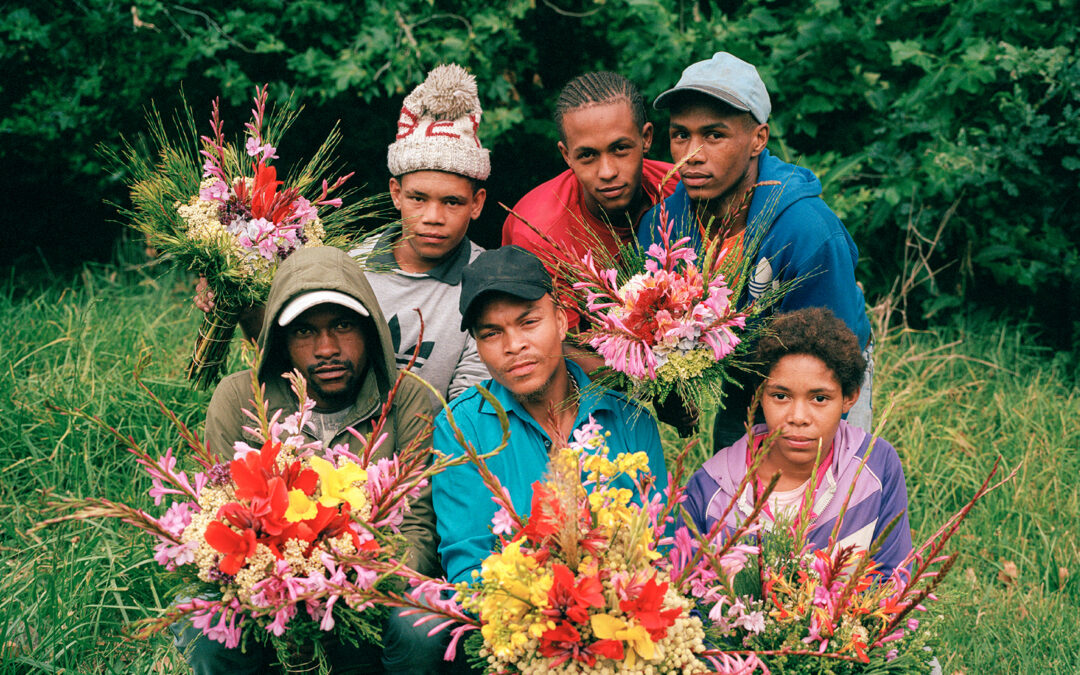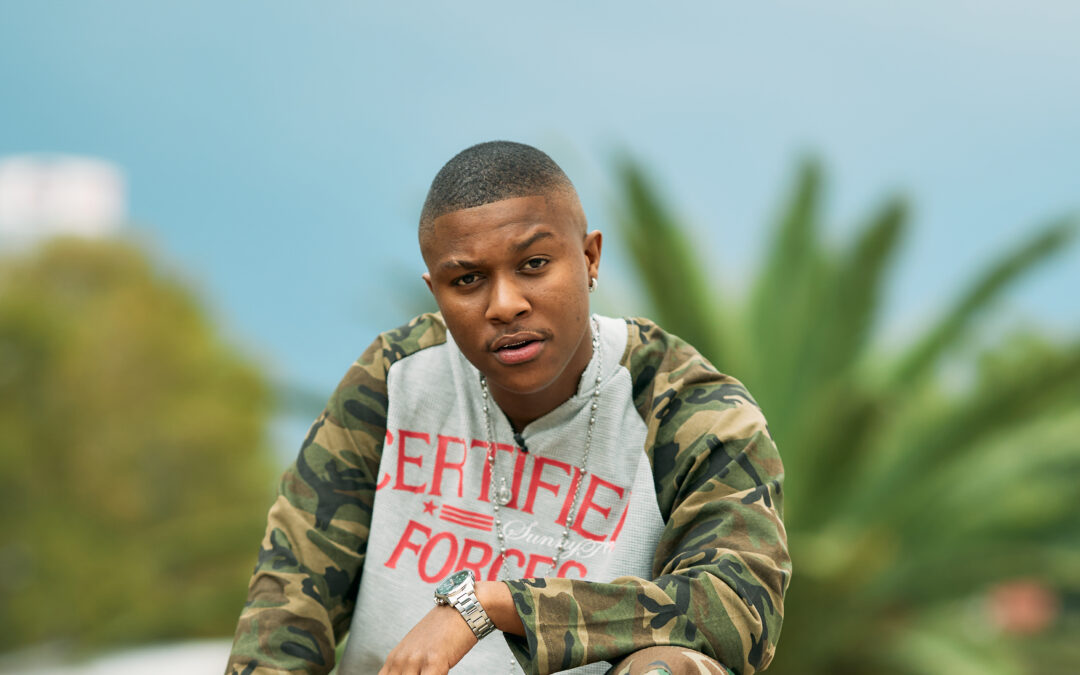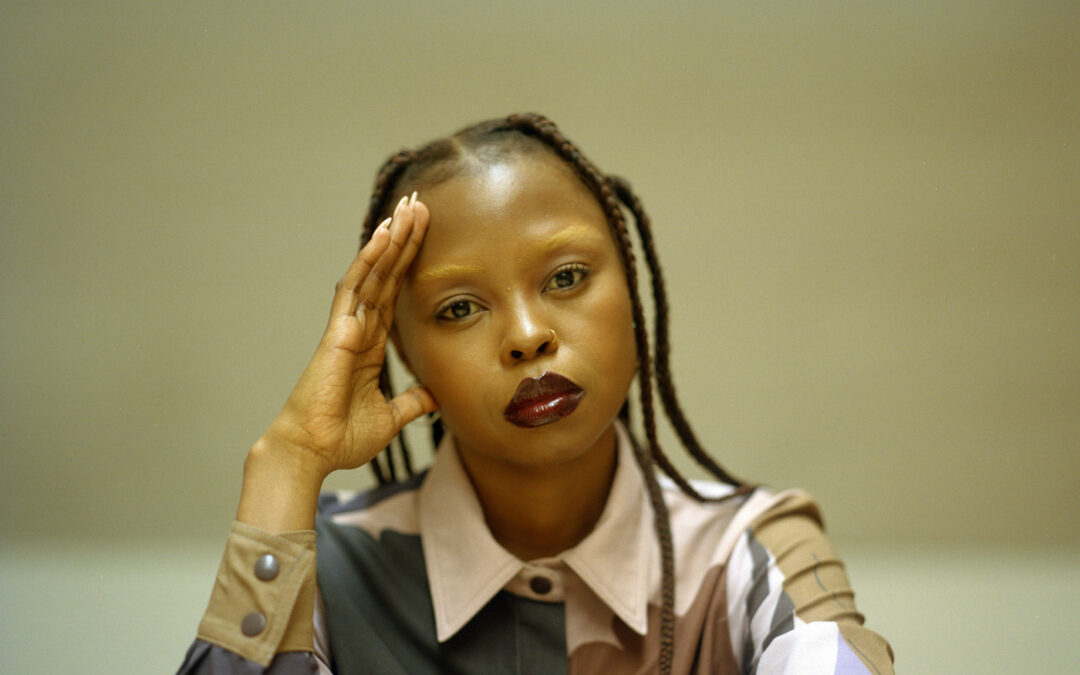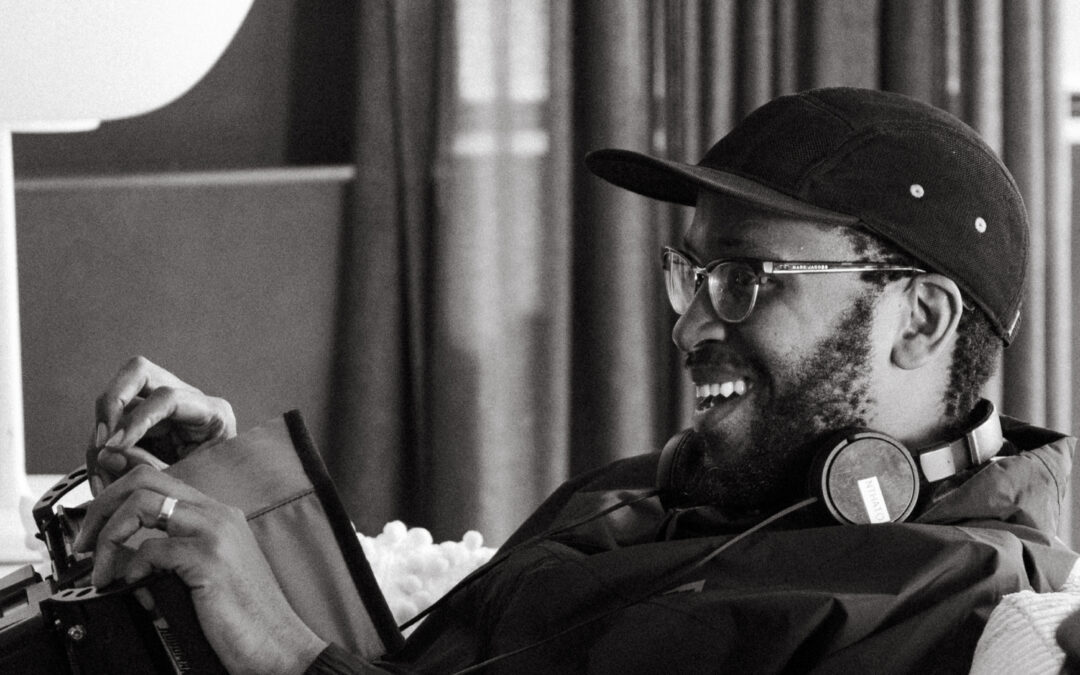Danielle Mbonu is reflective of Lagos’ essence; a patron saint of the creative chaos, cultural friction, and unapologetic drive that fuel one of the continent’s most potent capitals. As I muse to Dan — as she prefers to be called — the energy between South Africa and Nigeria is one of mutual respect and rivalry; we push and provoke one another, each country a mirror to the other’s ambition. Danielle stands as one of the preeminent figures of Nigeria’s creative ascent, particularly as it emanates out of Lagos; a city that births and builds visionaries daily.
Danielle is a restless experimenter, she moves between photography, film, and direction with the same instinctive ease that defines Lagos itself — quick, intuitive, irreverent. Her collaborations span fashion’s most forward-thinking circles and music’s most magnetic names, yet what seems to endure is the gaze that Dan casts: one that dignifies everyday youth culture and refracts it through a cinematic, opulent lens. As she notes, “Black beauty and opulence” anchors her interests, whether behind a camera or leading a creative vision, Danielle’s work continues to translate the pulse of a generation that is wildly improvisational and endlessly in motion.
From her early collaborations with global fashion houses like Nike and Off-White to her striking visual debut as one of the artistic directors behind Skepta and Wizkid’s Energy, Danielle’s work has expanded Lagos’ creative lexicon and positioned her as one of the key visual architects of contemporary African culture. It’s mind-bending, then, that Danielle credits her creative genesis only back to 2018 — a year she describes as a cultural ignition point for a new generation. “I think what really started everything for me and made me even just get into photography was just like back in 2018. That was when young people in Nigeria really started taking creativity very seriously,” Dan reminisces, and “that was when we started getting international attention — brands started coming here, that was the first year of the Homecoming festival — and I think that was when we realised this could actually be a thing for us. That was when internationally people started being interested in what we had going on creatively in Nigeria.” It was a moment, she reflects, when Lagos’ underground energy began to crystallise into a global movement; the birth of her career, and the birth of a new era in how the continent’s youth imagined and exported their world.
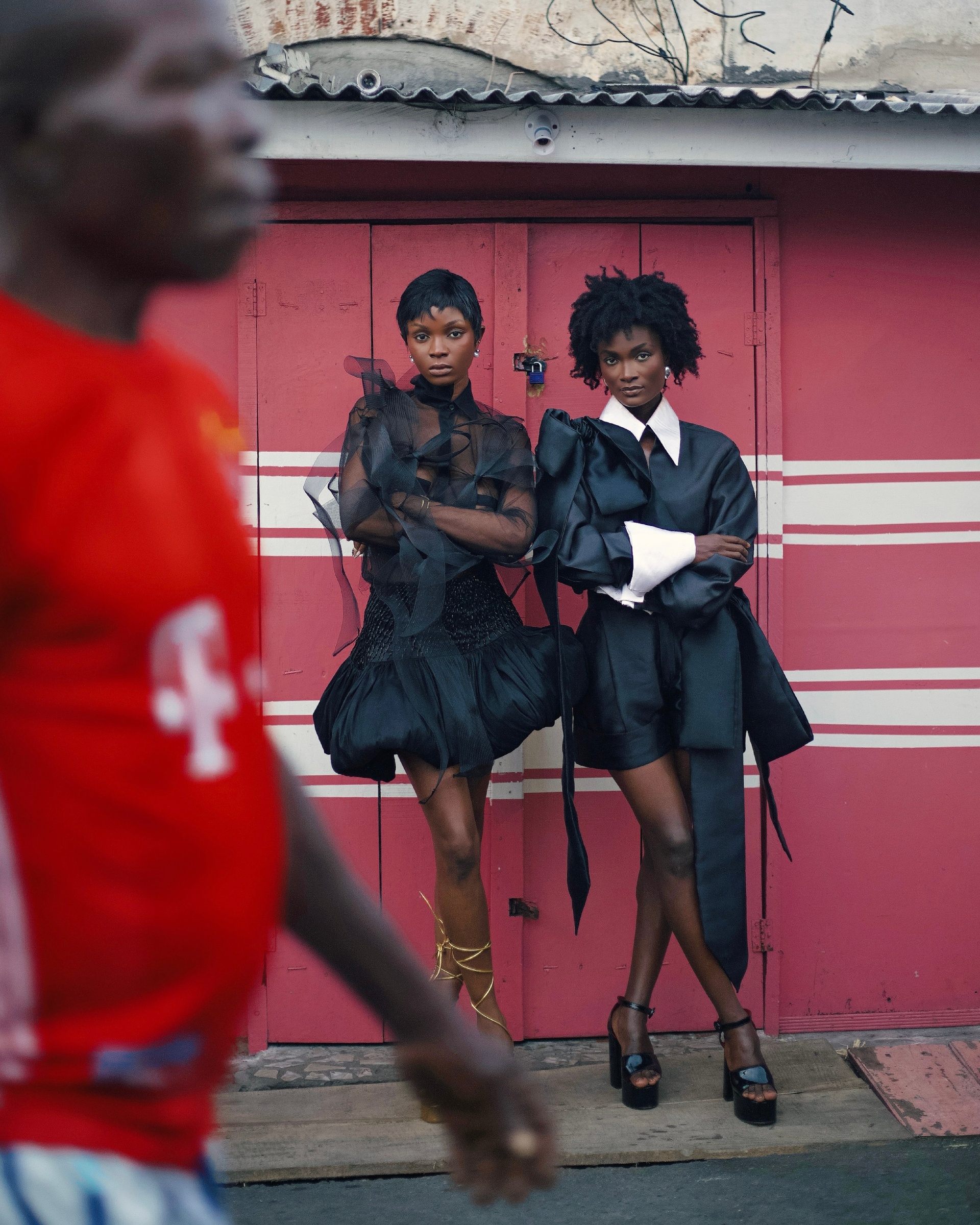
All images by Danielle Mbonu
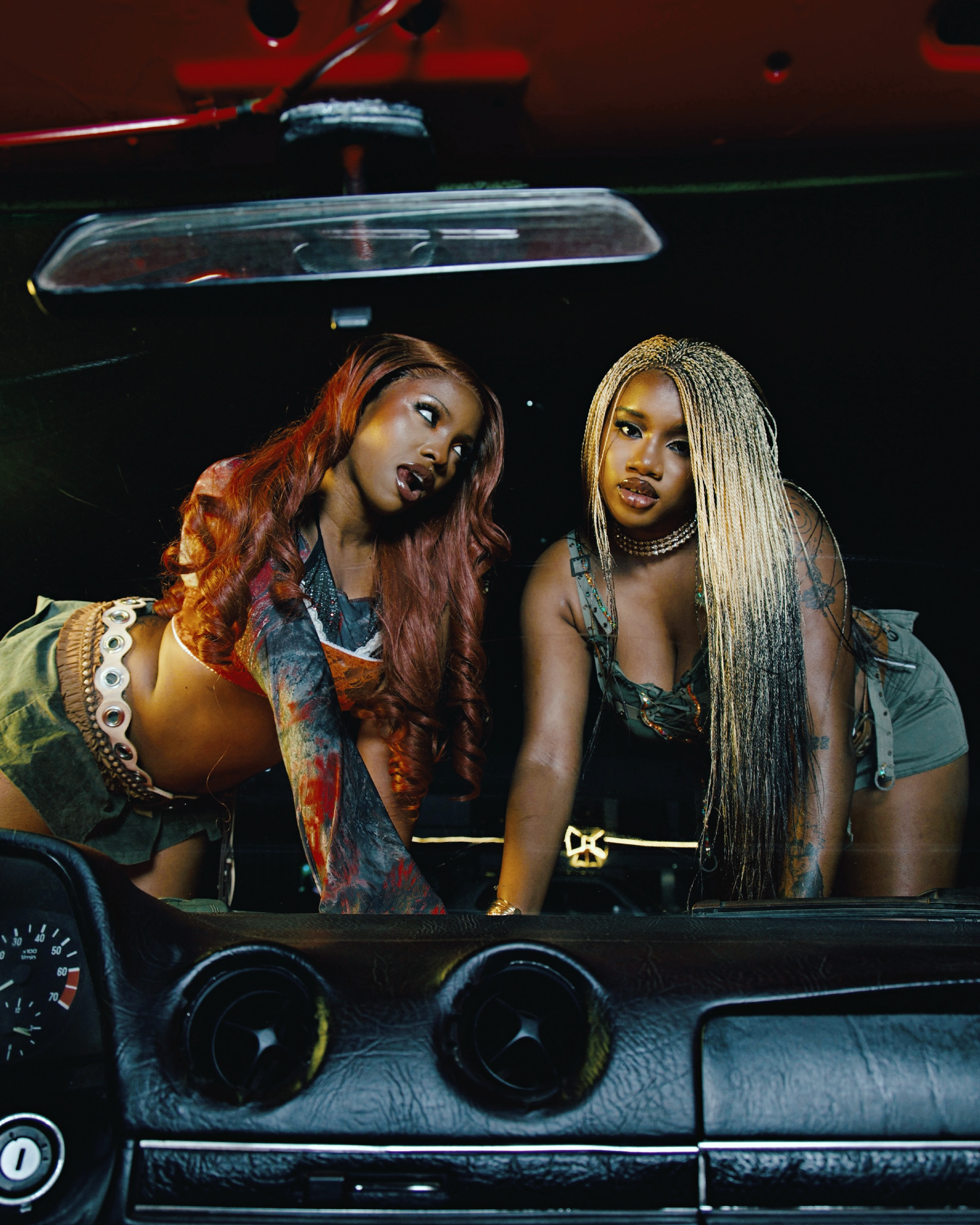
Lagos is a city marked by velocity and tension. Nigeria, vast and volatile, is a nation of over 200 million people whose cultural exports — from music to fashion to film — has played a critical hand in asserting the global imagination of Black modernity. Gaining independence just over six decades ago, and with a diaspora that spans every corner of the world, its creative voice has long existed in dialogue with, and sometimes in defiance of, the lingering shadow of British colonial influence. Danielle explains that her drive to reframe Lagos through her lens was born from a refusal to accept the narratives imposed upon it. “I always talk about this and I know people don’t like it, but it has to be said. I think a big problem I see with African creativity and with even how people present Africa and Nigeria — is with a focus on poverty. There is this instinct to want to show the bad parts, that I should take pictures of some poor kids on the street. But I think there are so many different ways to still uphold and show the good parts of where you come from.” This has long been a notion of struggle politics as a lens to elicit sympathy. It is, as we know, only derived from a eurocentric gaze that equates suffering with truth, and beauty with privilege.
As a visual narrator, Danielle’s philosophy is rooted in an unflinching authenticity and a refusal to perform for external validation or conform to the narratives that often shape how Africa is perceived. For her, beauty is constructed through recognition; a deep seeing of what already exists. “For me, I don’t pretend to be who I’m not,” she says. “A lot of people feel like they should do things a certain way because that’s what’s going to get them traction. But no — I’ve always seen the beauty in where I come from.” In her imagery, Nigeria is mediated through the lens of luminosity and self-possessed confidence; the codes of Blackness that speak of ease and style in a way that can only be born from experience.
“I always try to capture people in their most rich, most beautiful selves,” Daneille adds. This ethos extends to her visual language across creative direction; and is her insistence on reimagining African beauty in a contemporary form. “I know a lot of times now we don’t really wear our traditional fabrics as much, we don’t really do the hairstyles they used to do back in the day, but I feel like there are still ways to show our culture in a rich way — refreshed and reimagined for this era.”
For Danielle, the current visibility of African culture still feels surreal; a generational shift she’s both witnessed and helped assert. “If someone told me Nigeria or even Africa would be on the global stage like this now, I would never have believed it,” she says. Having studied in the UK during a time when African identity was often met with condescension or invisibility, she recalls the dissonance of being far from home while her culture remained uncelebrated. “It was never cool to be African. It was never cool to be Nigerian. No one listened to Afrobeats, no one wanted to dress African. If you did, people didn’t take you seriously.” Now, Danielle observes the pendulum’s swing with both wonder and pride, emphasising that “just to see the way everyone — even American artists — want to do Afrobeats, everyone is obsessed with African culture… I’m very grateful and happy to exist in this era.” We agree, and abide by the zeitgeist of vindication that feels particularly vital to us at CEC: a generation that has transformed what was once marginalised into the world’s new cultural centre of gravity.
Danielle reminds us that there has never been a better time to be a creative — especially on the African continent. “Back in the day, if you weren’t a doctor or a lawyer, you didn’t have a real job,” she laughs. Yet today, as global eyes turn toward Africa’s creative economies, artists like Danielle have set forth new parameters of possibility; making careers out of imagination and vision. “We’re so lucky to exist in this generation as creatives,” Danielle emphasises.

All images by Danielle Mbonu
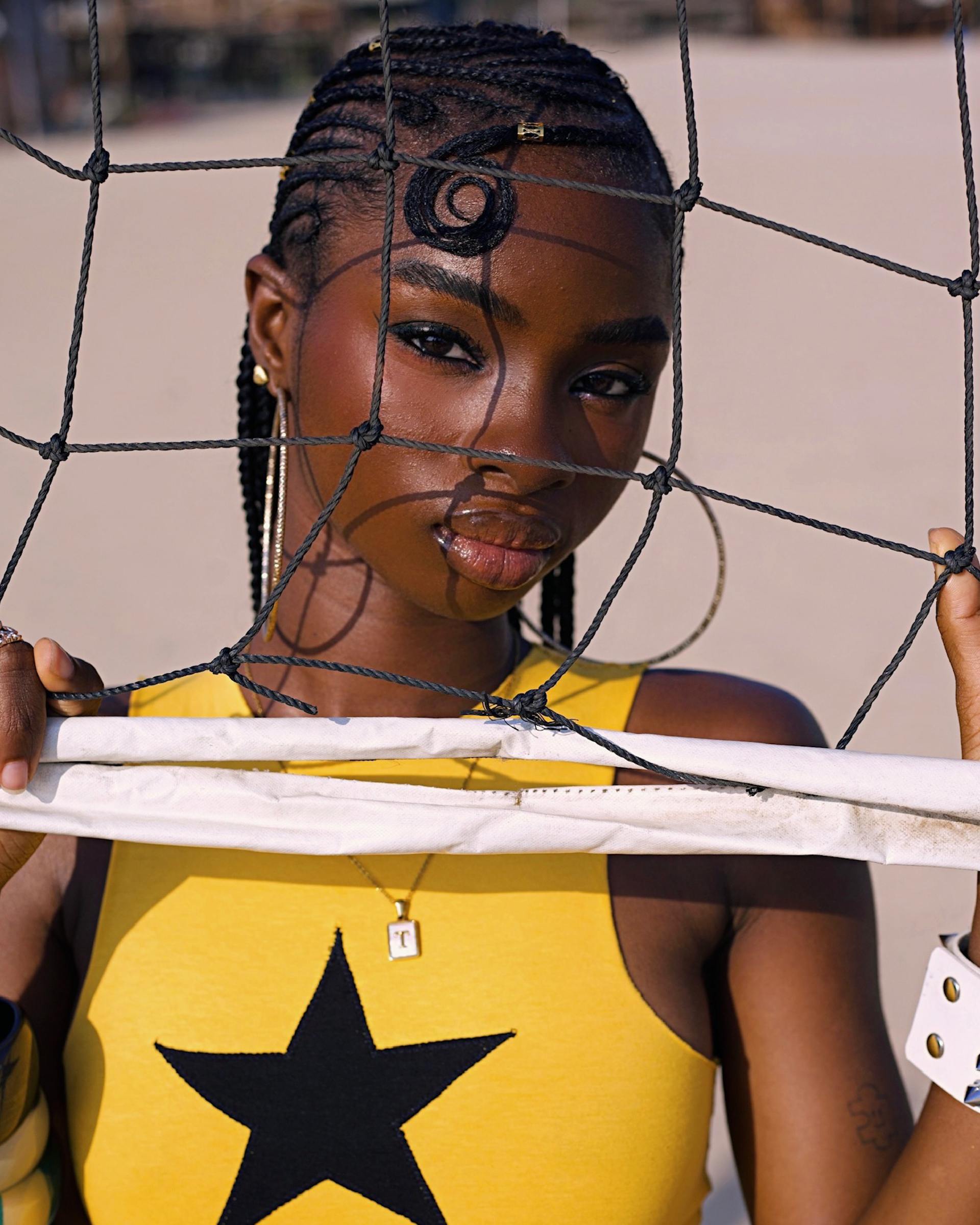
I’d be remiss if I didn’t ask Dan about her fabled big break that came through the hands and eye of Skepta; as if the pulse of global culture had suddenly turned its gaze toward Lagos and found her already in motion. Of this turning point, Danielle recalls the convergence of people, music, and possibility that defined 2018 — “the year everything changed,” that she had previously pointed to.
“That was when Homecoming started and Skepta came to Nigeria, and Naomi Campbell too,” she says. Though she’d been experimenting with photography since university, that moment marked her first proper shoot with her friends — an editorial for Skepta’s collaboration with Off-White. “After we’d worked on that they were like, ‘You guys are fire!’” she laughs. When Skepta returned to Nigeria to work with Wizkid on Energy, he invited Danielle and her peers to handle the creative direction — a leap of faith that would alter her path entirely. “I remember feeling like, I can’t believe this is happening — I have no experience in this!” she says.
I ask Danielle about 2025; “I think this year has been a very defining year,” she says. “I took a break for a bit, and the sad thing about creative work is that when you take a break you need to come back and remind people — like, you know, you’re still here. This year has really helped me shape what I want to do next in terms of my creativity, because I really want to go into video.” After several years of photographing musicians and cultural figures, Daniellee is feeling the pull back to her origins. “I want to shoot fashion films,” she continues. “I’ve been shooting a lot of artists mostly over the last two or three years, and I really want to go back to my roots — more fashion-focused stuff, more personal projects. I have quite a lot of things coming out that haven’t come out yet, but this year I think people are seeing that Dan is going back to her usual style of shooting. I’m excited!”
Lastly, I’m curious about Danielle’s creative philosophy, and her response is deceptively simple: make what feels true, not what feels popular. The rest, she insists, will follow. In an industry all too consumed by validation, Danielle’s stance is affirmed by her maxim that “your audience will always find you,” and “if this is really what you want to do, you have to bet on yourself and just keep doing the work.” For her, the proof is in the present. We’re literally living in a timeline where African creativity sits at the centre of the global conversation. As Dan urges us to remember, there’s never been a better time to be alive, and to be creative and unafraid to take up space in it. Go forth and create.
Written by Holly Beaton
For more news, visit the Connect Everything Collective homepage www.ceconline.co.za

